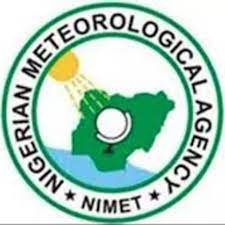The Director General of the Nigerian Meteorological Agency (NiMet), Prof. Charles Anosike, has announced that the agency is set to revolutionize urban climate monitoring in Nigeria through the deployment of innovative IoT-powered, LoRaWAN-enabled weather stations.
In a statement issued in Abuja on Sunday, Prof. Anosike, represented by the Director of Engineering and Technical Services, Engr. Hamid Abdulkareem, described the initiative as both strategic and transformative for Nigeria’s weather forecasting system.
The project, a collaborative effort between Barani Design Technologies and the West African Science Service Center on Climate Change and Adapted Land Use (WASCAL), is expected to significantly enhance the accuracy and efficiency of weather data collection in urban areas.
“This initiative marks a significant step forward in our commitment to providing accurate and timely weather information,” Anosike said. “These advanced weather stations will be instrumental in helping us achieve our targets.”
He noted that the new facilities will complement the existing 25 Barani Automatic Weather Stations (AWS) already operational within NiMet’s network. In addition, 59 compact automatic weather stations — including Barani models — are being reactivated to boost the agency’s weather station density and improve its observation and forecasting capabilities.
The NiMet DG urged Barani and WASCAL to ensure that the agency’s technical team is promptly informed of any capacity-building opportunities to guarantee the sustainability and seamless integration of the new automated weather systems.
In his remarks, Mr. Jan Barani, CEO of Barani Design Technologies, explained that the new generation of smart, energy-efficient weather stations was developed to improve data accuracy and reliability in urban areas.
“This breakthrough is part of an initiative to make weather monitoring systems more compatible with modern smart city environments,” he said. “Traditional weather stations often face challenges with inconsistent measurements and relocation issues, which this technology helps to overcome.”
Barani noted that the new design significantly reduces power consumption through advancements in IoT wireless technologies.
Also speaking, Mr. Diallo Abdulaziz, Coordinator of the Data Management Department at WASCAL, said that the partnership aims to strengthen NiMet’s meteorological network by improving power and connectivity solutions for weather stations nationwide.
He added that the new stations comply with the World Meteorological Organization (WMO) standards, ensuring that data collected is accurate, comparable, and useful for reliable weather forecasting and climate analysis.















